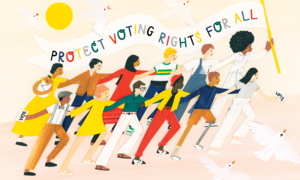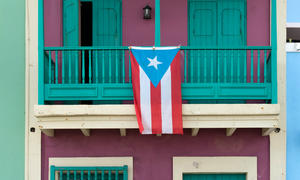The first day of my second year of teaching, a third-grader walked into class, saw another student and punched him in the nose. He didn’t say anything or give any indication that he was going to do this. It just happened. After cleaning up the blood and redirecting the class, I asked the attacker why he wanted to punch someone else. “He’s Mexican,” he said. “He don’t belong in my class.”



